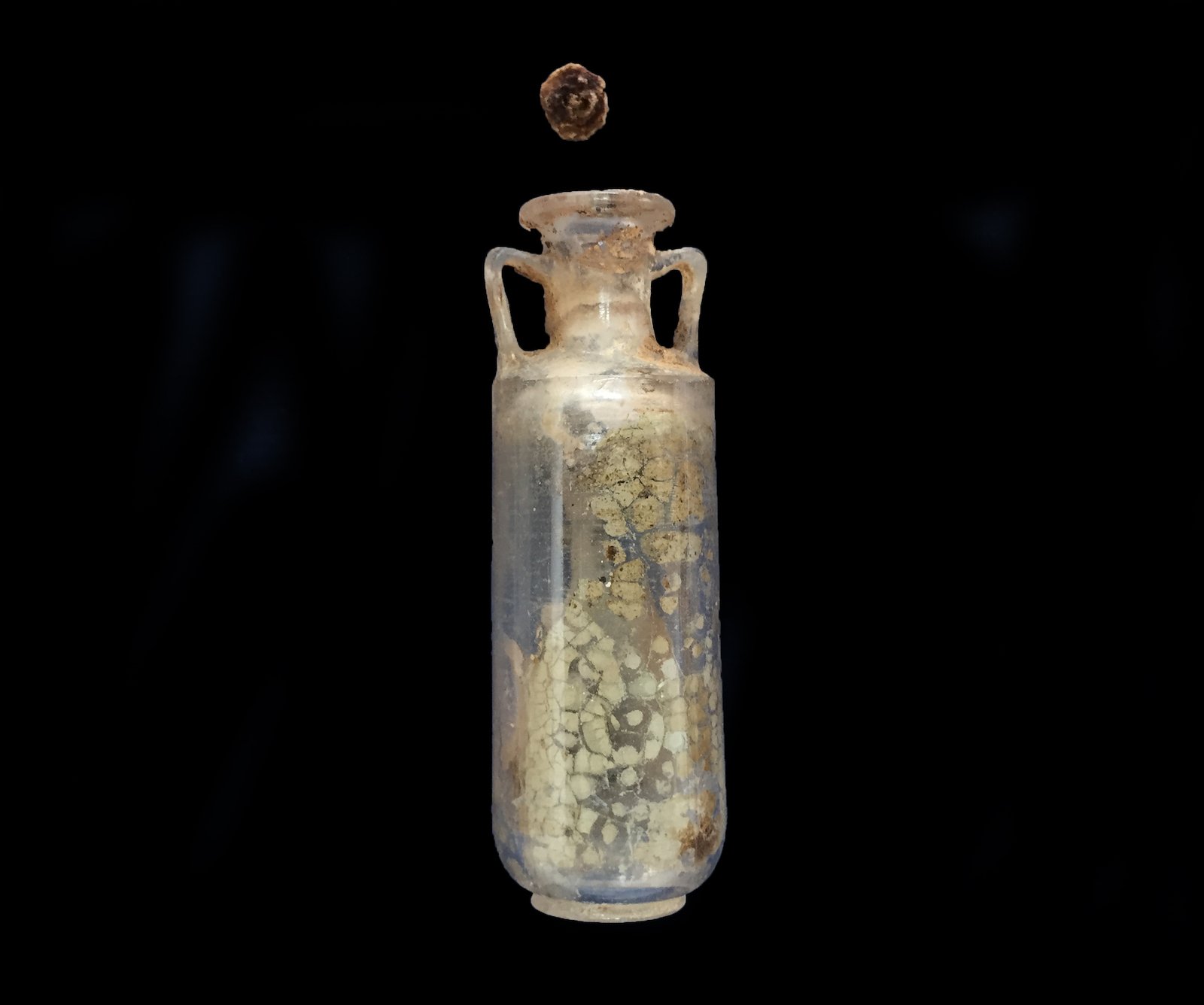
If you’ve ever wondered what kind of perfumes ancient Romans used, you may now have your answer.
A trio of researchers from the University of Cordoba and the Museum of the City in Carmona have published the results of their research into a 2019 find from a Roman tomb in the Spanish province of Seville: a rock crystal ointment jar sealed with a stopper to protect a solid substance within.
“To our knowledge,” wrote the authors of the paper, published in the journal Heritage, “this is possibly the first time a perfume from Roman times has been identified.”
They subjected the substance and the stopper to techniques like X-ray diffraction, infrared spectroscopy, and gas chromatography-mass spectrometry, which revealed that the substance contains hydrocarbons, sesquiterpenes (naturally found in plants and insects), and a vegetable fat.
The scent? Probably patchouli, that love-it-or-hate-it musty aroma you probably recall from your college dorm.
The Roman mausoleum where the ointment jar was found in a lead container in a wall niche. Courtesy Juan Manuel Román.
The jar was preserved in an egg-shaped lead case stored in a niche in the wall, containing bones, amber beads, and the ointment jar. Quartz jars were a objects of great luxury, according to the authors.
What makes the new find distinctive is that while past researchers have found plenty of vessels that held perfumes or ointments, their contents remained a mystery, say the authors, who point out that what has been known was mostly about the ointment or the base, rather than the fragrant essence itself. The dolomite stopper on the jar is also unique, report the authors.
The discovery was made after renovations to a building n Seville revealed the well-preserved Roman mausoleum.
The Roman mausoleum. Courtesy Juan Manuel Román.
Humans have used perfume for 5,000 years, beginning with the ancient Egyptians and then in Greece and Rome, where perfume was made in industrial quantities, the researchers said. The Romans used perfumes in everyday life as well as in ceremonies like funerals, to embalm the dead.